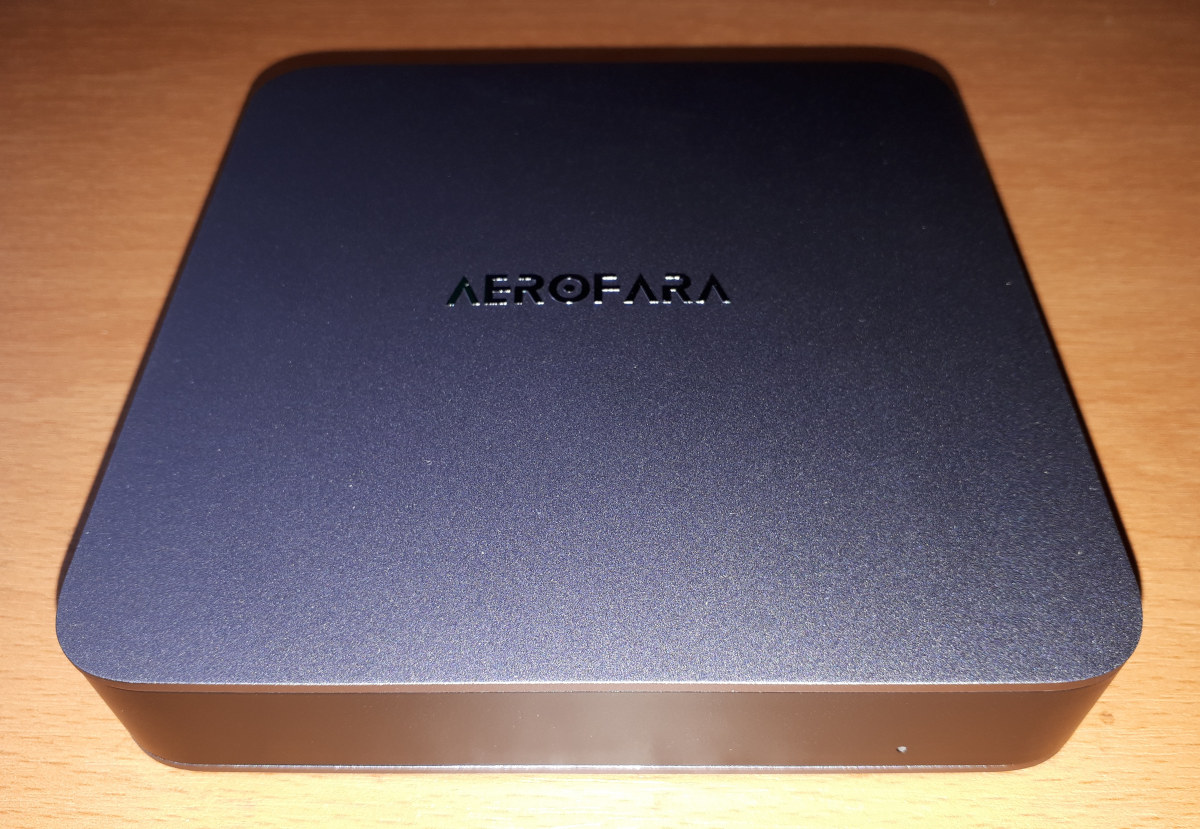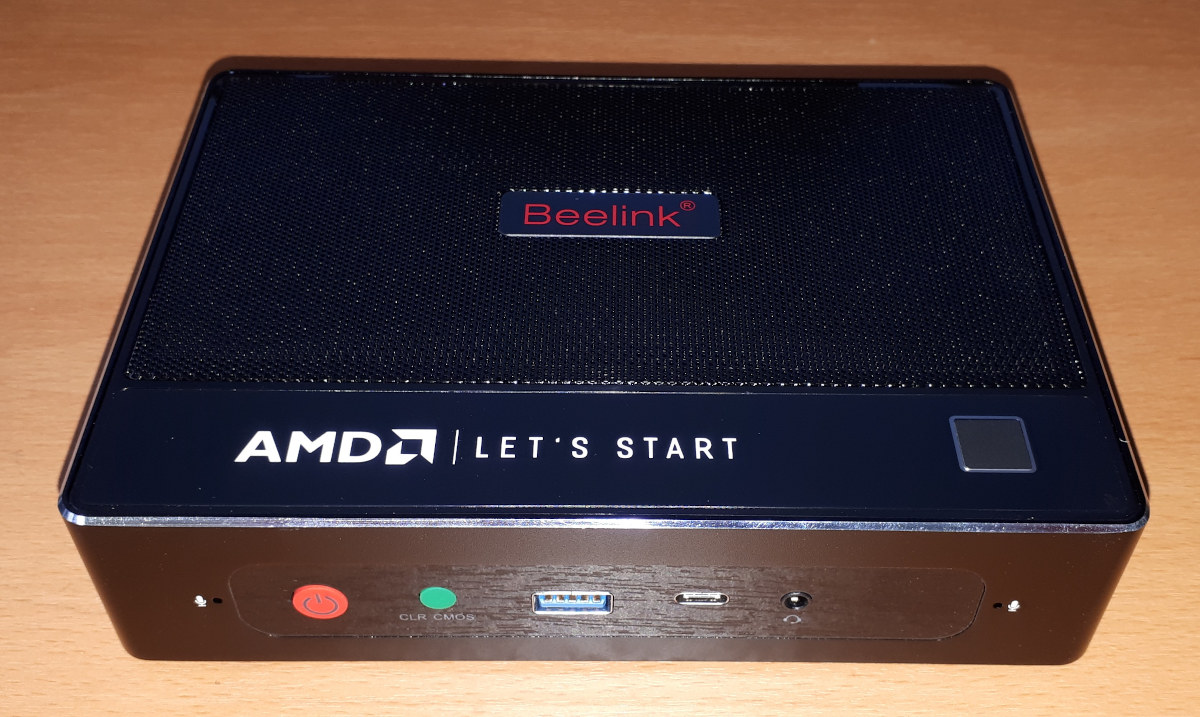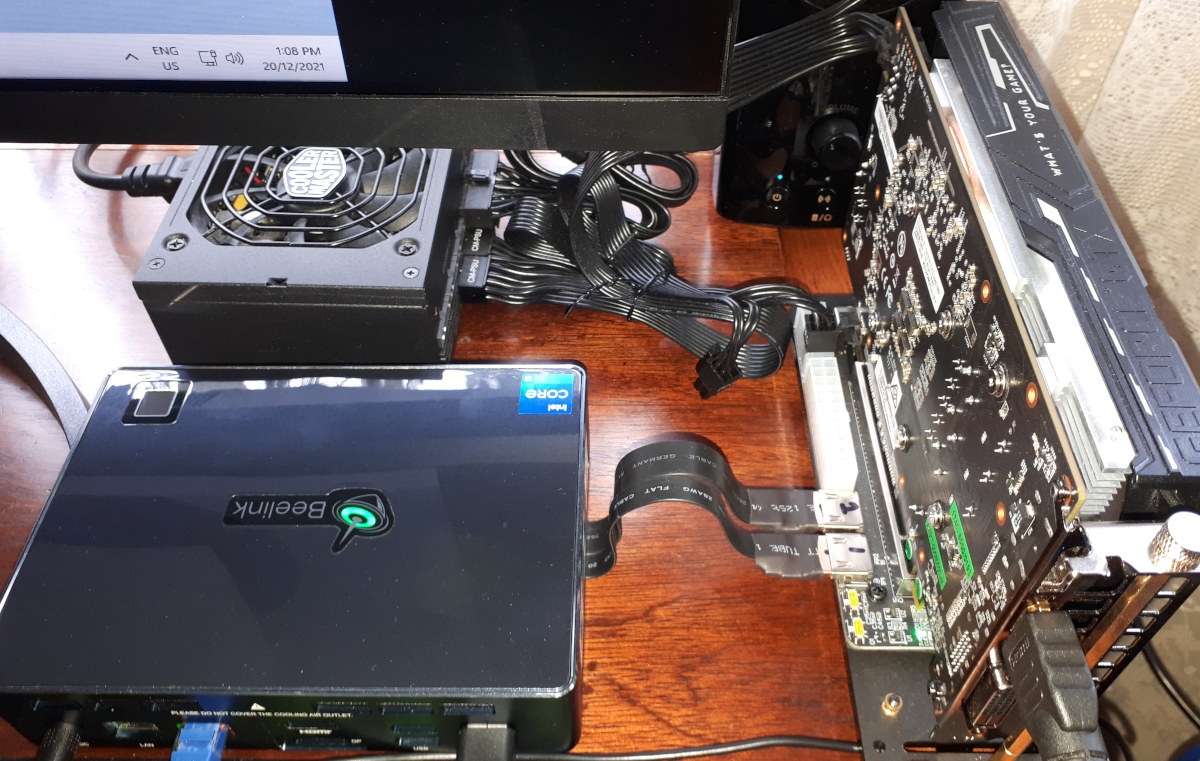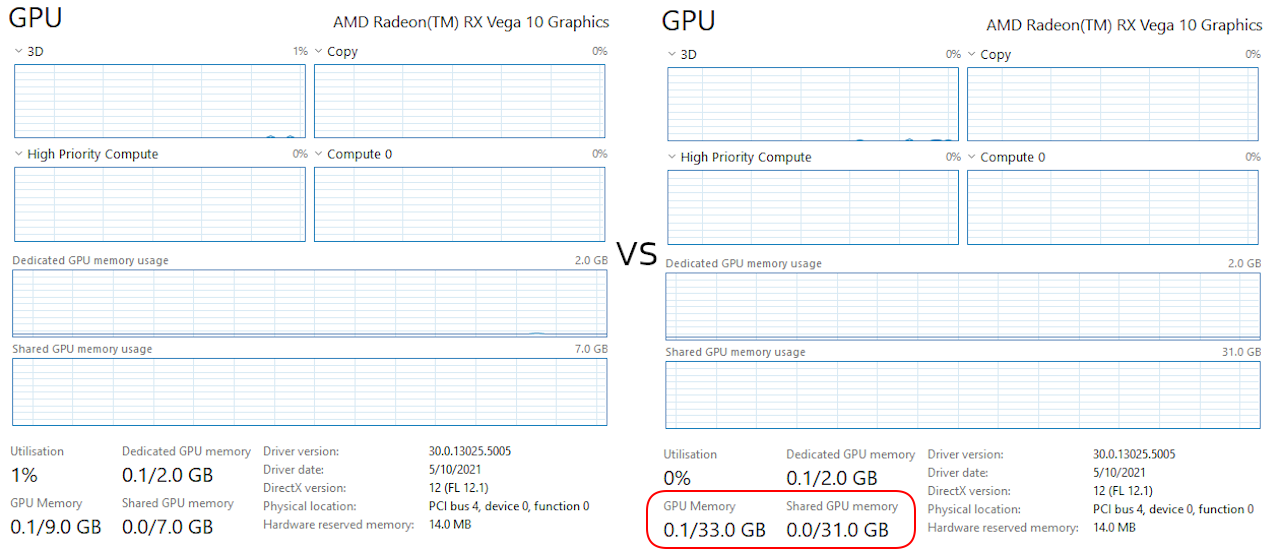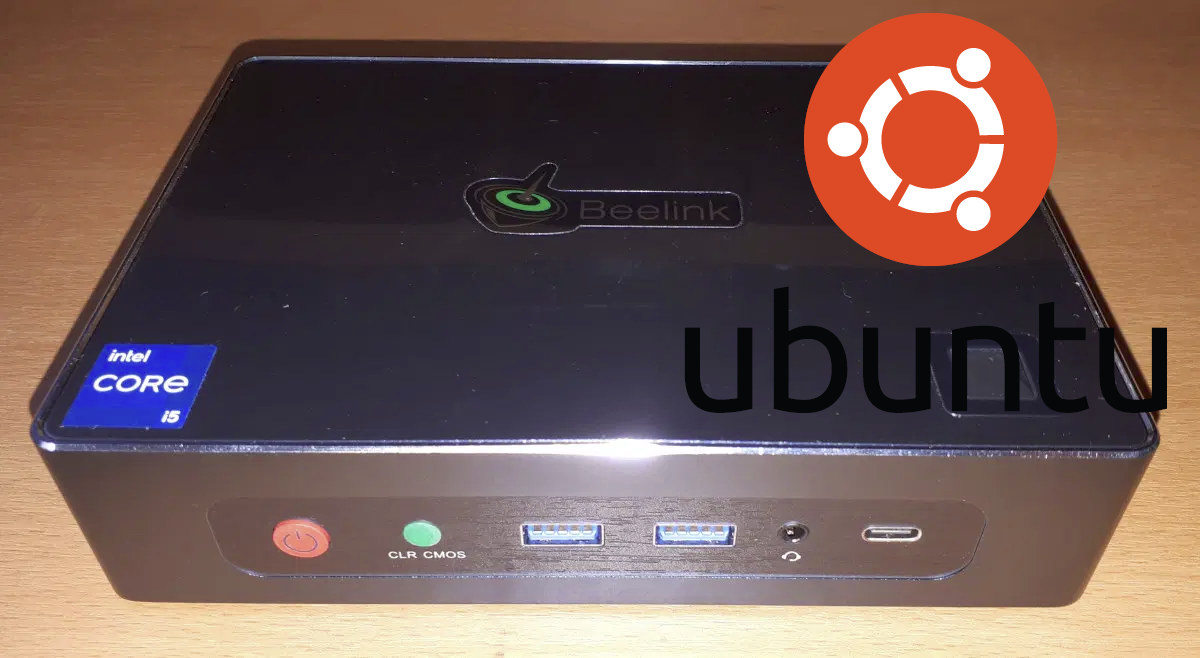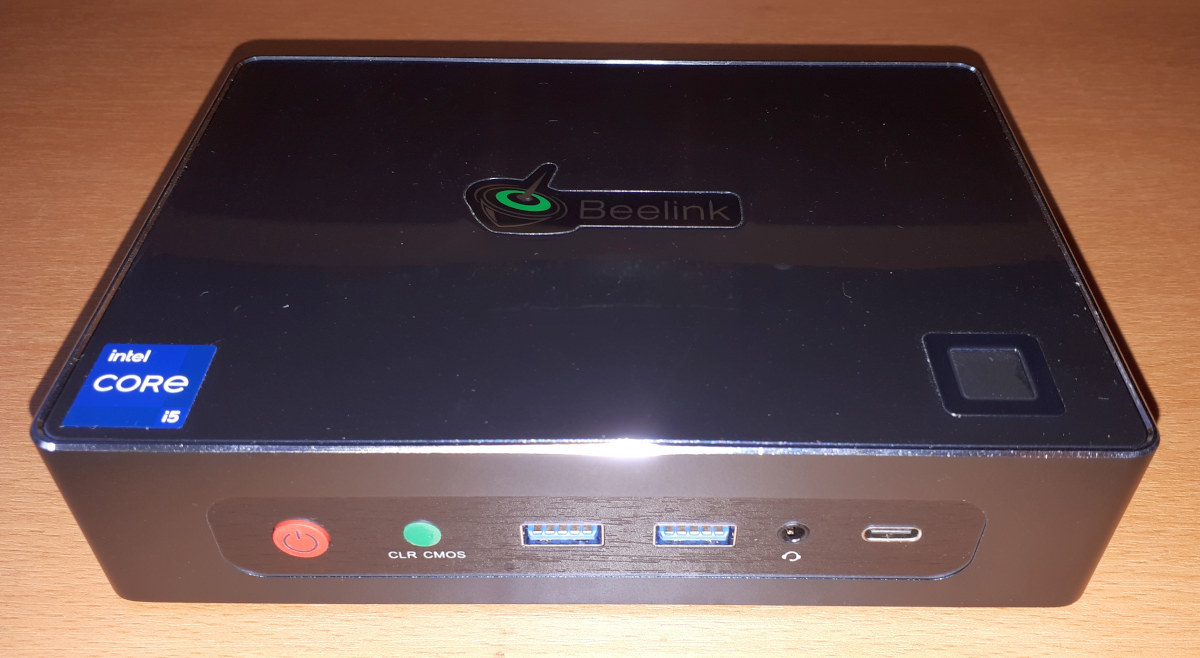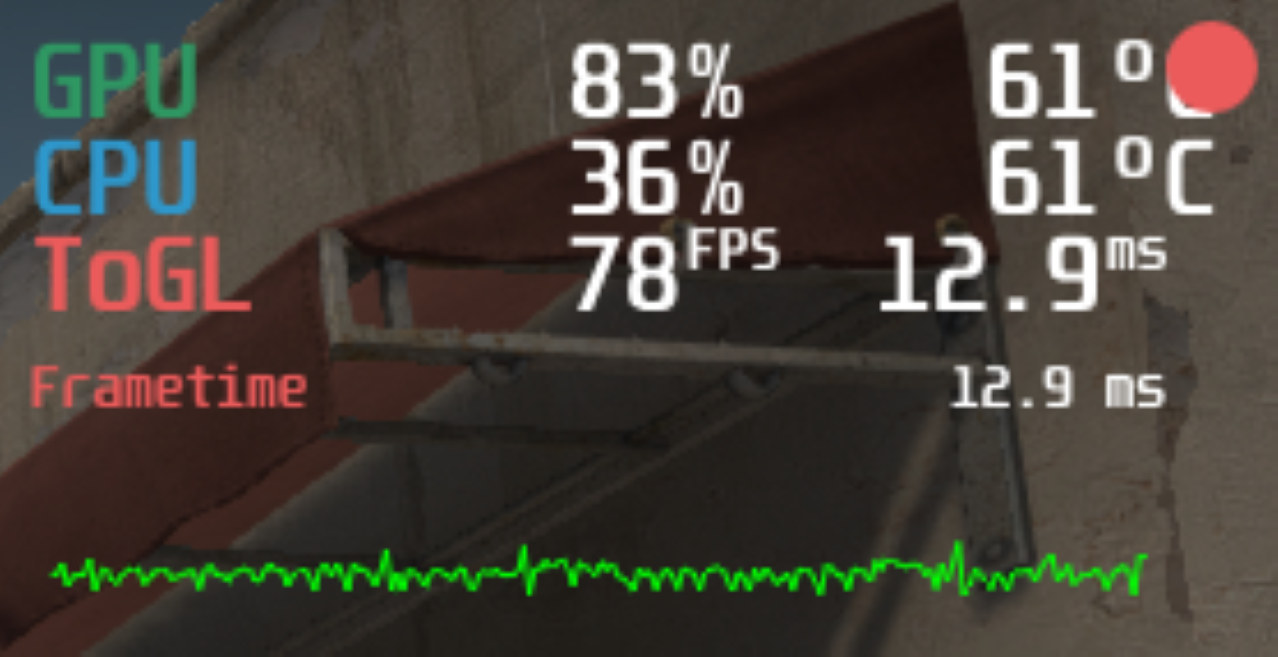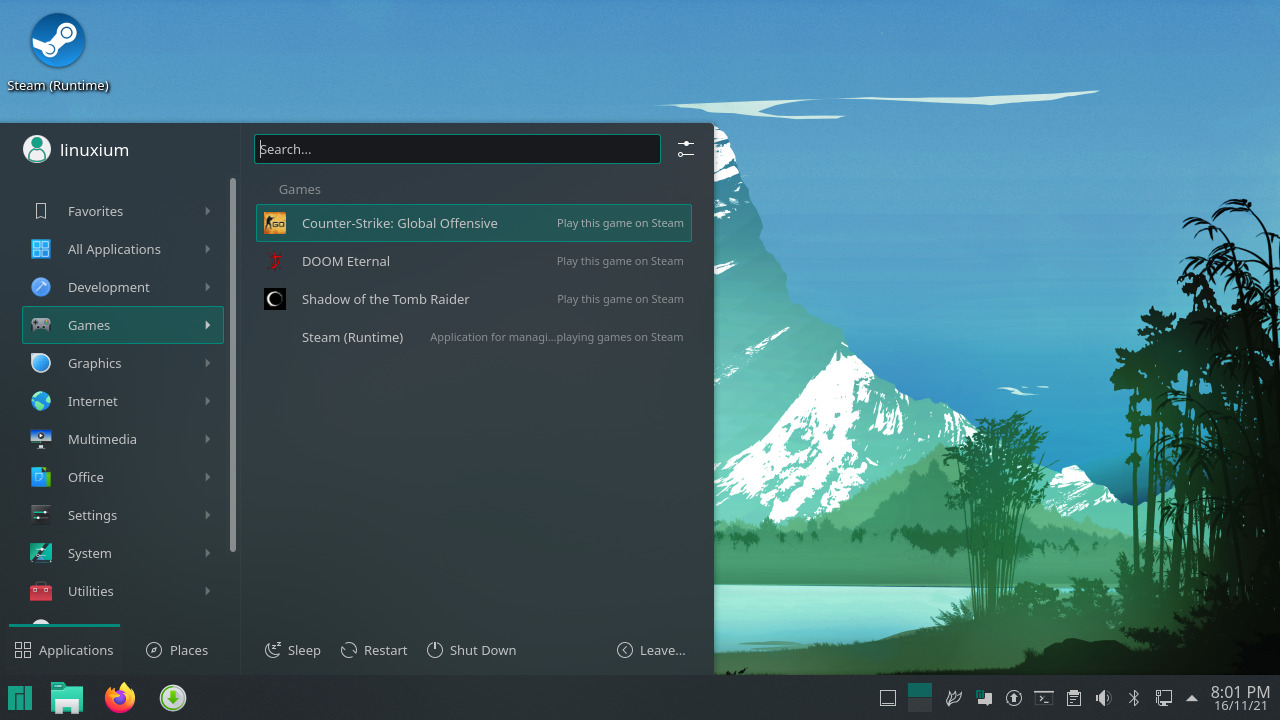Aerofara’s Aero 2 Pro is an Intel Jasper Lake mini PC and one of the very few new mini PCs to include a VGA port. Aerofara kindly sent one for review and I’ve looked at performance running both Windows and Ubuntu. Aero 2 Pro Hardware Overview The Aero 2 Pro physically consists of a 120 x 120 x 23mm (4.72 x 4.72 x 0.91 inches) rectangular metal case with inset front and back plastic panels. As an actively cooled mini PC, it uses Intel’s 10 nm Jasper Lake N5105 processor which is a quad-core 4-thread 2.00 GHz Celeron processor boosting to 2.90 GHz with Intel’s UHD Graphics. The front panel is bereft of anything save a pinhole which is illuminated blue when the device is powered on. The rear panel includes the power jack, a USB 3.1 port, an HDMI port, an Ethernet port, a 3.5mm headphone jack, and a […]
Beelink GTR5 Review – An AMD Ryzen 9 mini PC tested with Windows 11, Ubuntu 20.04
Beelink’s GTR5 is their most powerful mini PC to date and has been released as part of their ‘GT’ series of slightly larger mini PCs that are notable for expandable storage configurations together with multiple ports and characterized by the inclusion of a fingerprint scanner. Featuring an AMD Ryzen 9 mobile processor with Radeon Graphics, Beelink kindly sent one for review and I’ve looked at performance running both Windows and Ubuntu. Hardware Overview The Beelink GTR5 physically consists of a 168 x 120 x 39mm (6.61 x 4.72 x 1.54 inches) rectangular metal case. As an actively cooled mini PC, it uses AMD’s ‘Zen 3’ Ryzen 9 5900HX processor which is an eight-core 16-thread 3.3 GHz mobile processor boosting up to 4.6 GHz together with Radeon Graphics. The front panel has an illuminated power button, a ‘CLR CMOS’ button, a USB 3.1 port, a Type-C USB 3.1 port, and a […]
Beelink GTi11 modding – PCIe Gen 4.0 M.2 slot, tweaking power limits, and eGPU
Previously I reviewed Beelink’s new GTi11 Intel Tiger Lake mini PC running Windows 11 and Ubuntu 20.04, so in this final part of the review, I’ll cover in more detail some of the features only briefly highlighted before. Specifically, I’m going to look at the PCIe Gen 4.0 M.2 slot, dabble in ‘overclocking’ and explore eGPU options. Hardware Recap The GTi11 is a 168 x 120 x 39mm (6.61 x 4.72 x 1.54 inches) actively cooled mini PC and the review model has an i5-1135G7 Intel Tiger Lake quad-core 8-thread 2.50 GHz Core processor boosting to 4.20 GHz with Intel’s Xe Graphics. The review model also included a 500GB M.2 2280 NVMe PCIe Gen 3.0 SSD drive with Windows 10 Pro installed, two sticks of 8GB DDR4 3200 MHz memory, a soldered WiFi 6 (or 802.11ax) Intel AX201 chip, and dual 2.5Gb Ethernet ports. Interestingly there are another two key […]
OS and Memory Impact on Mini PC Gaming Performance
This article looks at what the effect of running a different operating system or having more memory has on similarly spec’d Intel and AMD mini PCs when gaming. Note: This article has been updated and corrected as a result of reader feedback and additional testing. It was inspired by having built and tested a pseudo ‘Steamdeck’ running Manjaro on an AMD-based mini PC with 16GB of memory, which made me wonder what the performance would be like using Windows 11. Initial results were surprising because Windows appeared much slower. As I’d previously heard of performance improvements when using 64GB of memory I swapped out the currently installed 16GB memory and immediately saw improved results. As I’d never observed such a dramatic performance increase on Intel mini PCs just through increasing the memory I decided to explore further by testing gaming performance on similar Intel and AMD mini PCs when using […]
Beelink GTi11 review – Part 2: Ubuntu 20.04 on an Intel Core i5-1135G7 mini PC
Previously I reviewed Beelink’s new GTi11 Intel Tiger Lake mini PC running Windows 11, so in this part, I will cover Ubuntu 20.04. Hardware Recap The GTi11 is a 168 x 120 x 39mm (6.61 x 4.72 x 1.54 inches) actively cooled mini PC and the review model has an i5-1135G7 Intel Tiger Lake quad-core 8-thread 2.50 GHz Core processor boosting to 4.20 GHz with Intel’s Xe Graphics. The review model also includes a 500GB M.2 2280 NVMe PCIe Gen 3.0 SSD drive initially with Windows 10 Pro installed but now successfully upgraded to Windows 11 Pro, two sticks of 8GB DDR4 3200 MHz memory, a soldered WiFi 6 (or 802.11ax) Intel AX201 chip and dual 2.5Gb Ethernet ports. The specifications list four of the USB ports as 3.0 so I retested them on Ubuntu using a Samsung 980 PRO PCle 4.0 NVMe M.2 SSD housed in an ‘USB to […]
Beelink GTi11 Review – Part 1: Tiger Lake mini PC with Windows 11
Beelink’s GTi11 is the latest offering in their ‘GT’ series of slightly larger mini PCs that are notable for expandable storage configurations together with multiple ports and characterized by including a fingerprint scanner. Featuring Intel’s 11th generation Tiger Lake processors, Beelink kindly sent an i5 version for review which I will undertake in three parts. In this first part, I’ve looked at Windows performance and the second part will cover Ubuntu with the third part looking at various configuration mods. Beelink GTi11 Hardware Overview The GTi11 physically consists of a 168 x 120 x 39mm (6.61 x 4.72 x 1.54 inches) rectangular metal case. As an actively cooled mini PC, it uses Intel’s ‘10 nm SuperFin’ Tiger Lake processors and the review model included an i5-1135G7 which is a quad-core 8-thread 2.50 GHz Core processor boosting to 4.20 GHz with Intel’s Xe Graphics. The front panel has an illuminated power […]
Using MangoHud to check FPS, CPU & GPU usage on a ‘hackendeck’
Previously I followed Valve’s documentation to build a ‘hackendeck’ using a mini PC to emulate their highly anticipated Steam Deck. Interestingly the ‘hackendeck’ uses a Linux OS, specifically Manjaro, as whilst Valve based their earlier version of Steam OS on Debian, they have now switched to being based on Arch. If the ‘hackendeck’ had just been Steam on Windows then to review gaming performance I’d just use MSI Afterburner. Until now, however, for Linux, I’ve always had to estimate the average FPS as I’ve not been aware of a good reliable equivalent. Fortunately several ‘commenters’ recommended using MangoHud, a Linux open-source Vulkan/OpenGL overlay for monitoring FPS, CPU/GPU usage, and temperatures similar to MSI Afterburner. So now I’ve been able to capture the average frame rate for the games I previously tested and I’ll present them below. MangoHud Installation and configuration The installation of MangoHud was extremely simple. First I installed […]
Experiences of configuring and using a ‘hackendeck’ homemade Steam Deck
Valve recently released information about developing for the Steam Deck if you didn’t have a Dev-Kit which is an engineering verification test build (EV2) version of their device. Included in the documentation is a suggestion to build your own Steam Deck, or ‘hackendeck’ using a mini PC. Whilst I didn’t have the exact brand they picture in the article I did have a mini PC with the required specifications so I set about following the instructions to see how it performed. Hardware Overview Valve’s documentation under ‘Performance’ states that ‘if you are really interested in finding a PC for testing that will perform similarly to a Steam Deck … there are a few options out there and then goes on to suggest a mini PC with the following ‘roughly similar specifications to a Steam Deck’: AMD Ryzen 7 3750H Radeon RX Vega 10 Graphics 16GB of DDR4 RAM This exactly […]


